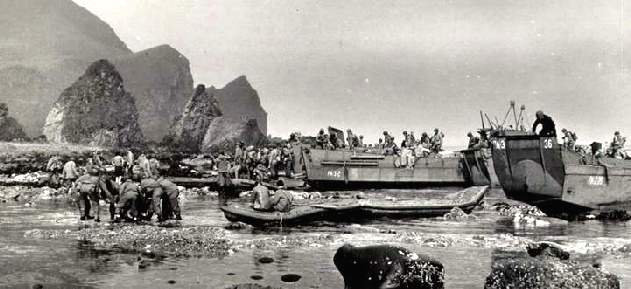
This declassified War Department photo shows Marines practice landing on Alaskan beaches in preparation for retaking Attu and Kiska.
Introduction
World War II changed Alaska forever. Thousands of troops built and manned coastal fortifications, including many large facilities around Kodiak Island. Parts of Alaska were bombed and invaded, the only U. S. soil to suffer invasion in the entire conflict. This short photo essay shows a few of the transport ships used to bring personnel to and from Kodiak during its military years, 1940’s through the 1950’s. For info on Fort Tidball, a large wartime coastal battery installation near Kodiak, click here: Woody and Long Island Index
World War II:
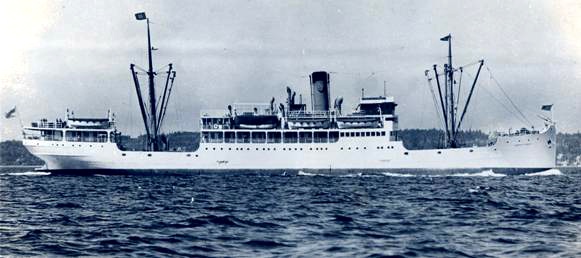
The SS North Coast is underway in Puget Sound in this publicity postcard, before being commandeered for military transport service. The original steamship line may have been the Northland Transportation Co.
The USAT (United States Army Transport ship) North Coast at Erskine Dock.
The North Coast, obviously not in military garb, was apparently leased at this time to bring soldiers to help build and staff the new base at Kodiak. This ship is listed as one of the first large vessels to dock at the new long pier at the Navy Base, so this photo must have been taken before the dock was completed in 1941. This photo by Helsel gives Kodiak a nice, important seaport feel, reflecting the fact that Kodiak was becoming a major military hub in the North Pacific in the early 1940s, even before the outbreak of World War II.
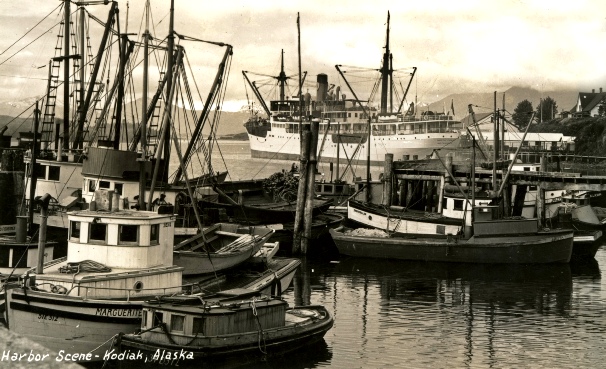
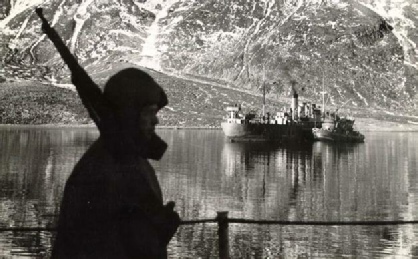
A member of the U. S. Coast Guard stands sentry duty along the Alaska coast in this War Department photograph.
Many of the ships used to transport troops and supplies in the early days of the war were requisitioned from commercial firms such as the Alaska Steamship Company (see section on the SS Yukon, below).
The Alaska Steamship SS Yukon, in happier days. She broke apart in 1946 (next photo) while still in the service of the War Department.

This rare photo shows the SS Yukon, after running aground in a blizzard in the early morning of February 3, 1946 (From the Jean O. Lund collection).
After running aground, the heavy surf ripped away most of her stern. There were over 500 people aboard, and a total of eleven were lost, some when the ship broke apart, and some later as they attempted to launch lifeboats in heavy seas. The ship was still in military garb, with gun turrets still in place, and was under charter to the U. S. government as a military personnel transport at the time.
Postwar Military Transportation to Kodiak: The USS Funston
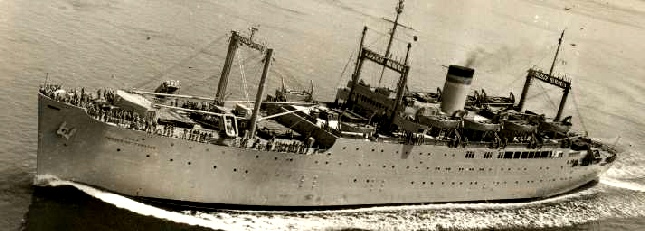
The USNS Funston, Troop Carrier, regularly transported military personnel to and from Kodiak and other Alaskan military installations from the War years to the late 1950’s.
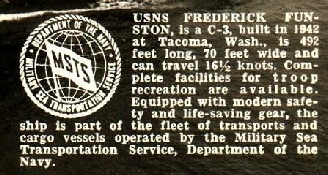
Here is the ship’s data. This detail, and the previous photo, are from an old post card which was produced for the use of the military personnel who sailed on her.
This color photo of the USNS Funston coming into port at the Kodiak Navy Base is from the collection of Bob Railsback, taken in 1957.
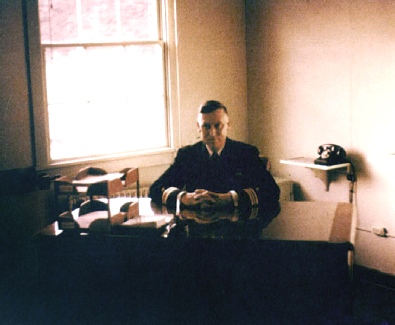
Robert Railsback served as second in command at the Kodiak Navy Base in 1957-
If you served in Kodiak during the 1940’s through the 1970’s (the approximate dates
of my historical articles) please contact me at the e-
How to Get to Kodiak: The Military Transports
By Timothy Smith, Originally posted in 2005, latest revision in 2020
How to Get to Kodiak: The Military Transports
Part of the “How to Get to Kodiak” series of articles
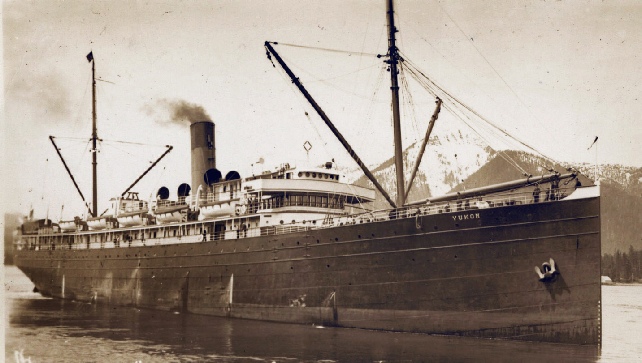
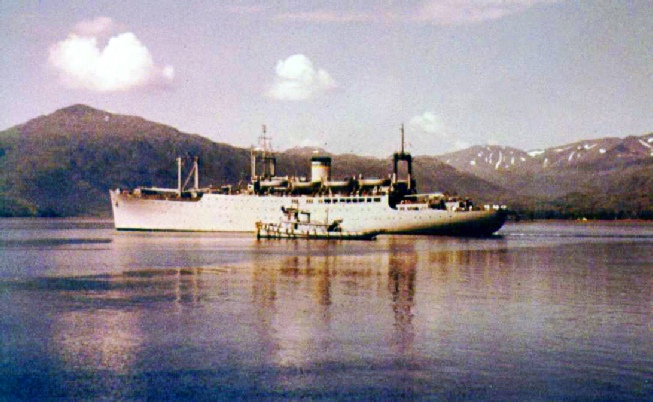


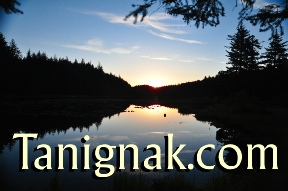

To Find Out More About Tanignak.com, Click HERE
To Visit My “About Me” Page, Click HERE
To Return to Tanignak “Home,” Click the Logo Below:
Information from this site can be used for non-

